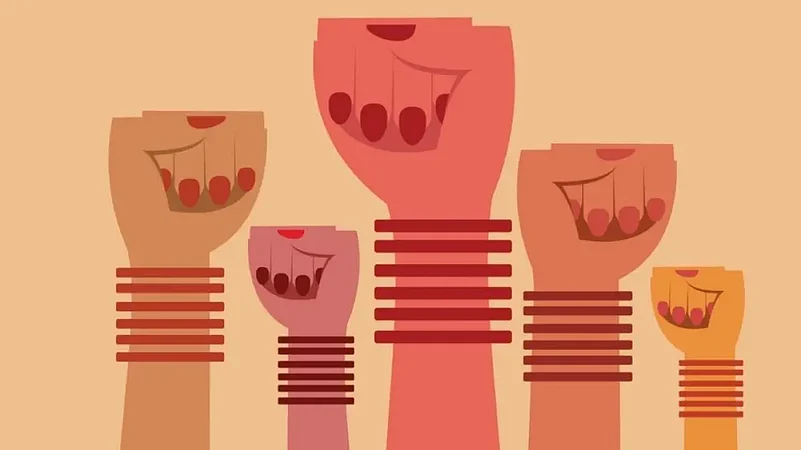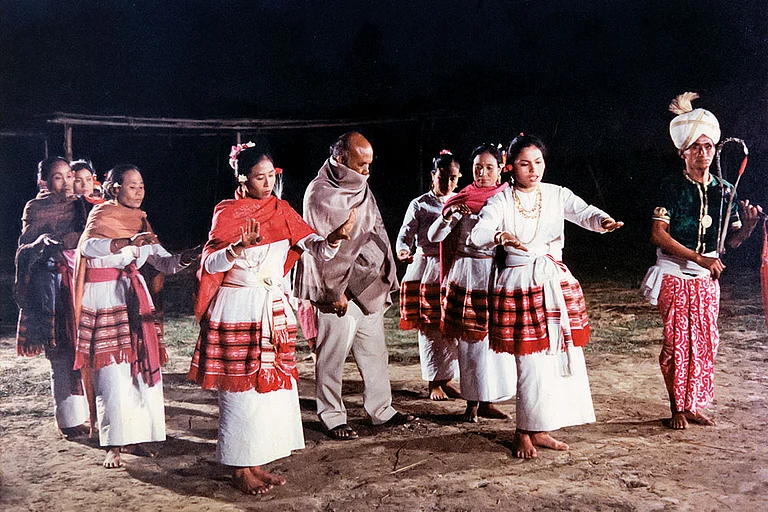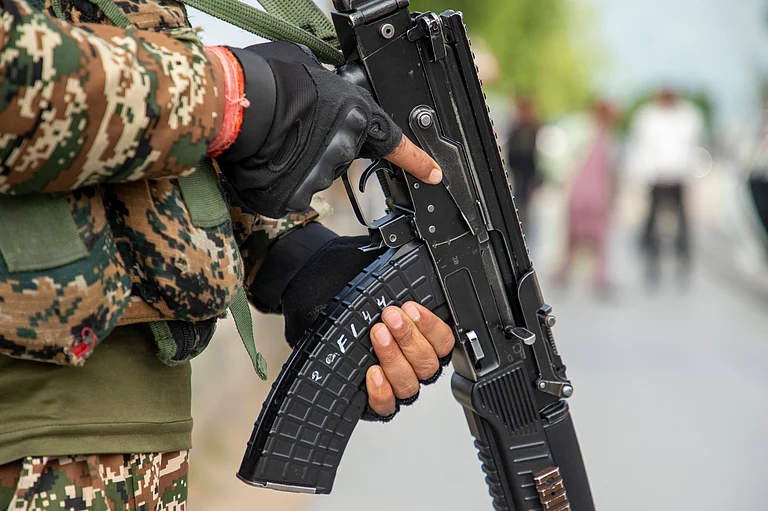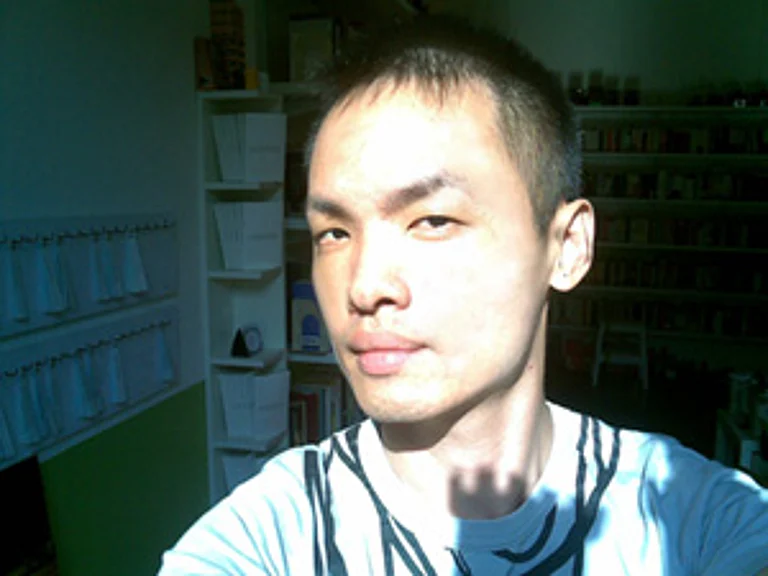Mulaqat is a time
When women visit men in prison
And no one visits the women in prison.
Where you are locked up,
Echoing your thoughts,
A cell is the building block of all organisms.
…writes Dr Soibam Haripriya in her landmark poem, In-Prison. The 39-year-old Fulbright Nehru Post-Doctoral Fellow writes extensively on anthropology of violence, collective memory, gender and sexuality in armed conflict and martyrdom in South Asian Countries. In India, this scholar and mother tries to capture the social anthropology of Manipuri society with poetry.
Her poem, ‘In prison’ reflects on the current political dilemma in India where rights like free speech are subdued by charges of sedition, persecution and violence. In fact, in 2020, her state Manipur has recorded the highest number of sedition cases in the entire country under the Unlawful Activities (Prevention) Act. It witnessed journalists, activists, scholars being thrown in jail for months and years especially since the 2017 BJP government.
To understand how Manipur society is sailing in fast-changing times, the manufacturing of fear, the environment of trust or mistrust… the discussion seems incomplete without referring to Haripiya’s work. Evident in her below excerpt from In-Prison:
Poets are redundant. Poetry does not matter or it is all that matters.
They say, once you've been to a real prison
The metaphorical one is such a joke.
My brother has been to one, peddling, not for any exalted cause.
I do not know how he felt about it,
We do not talk.
In another powerful poem, Dream/ Delusion (excerpt below), Haripriya highlights the efforts made by the youth with their innovative campaigns, art, and other creative democratic engagements to promote and preserve democracy. The present struggle of Manipuri civil society, especially youths to hold on to democratic spirit in desolate time braving odds and threats has been found in Dream/ Delusion written around 2017 Assembly polls in Manipur.
Everything unravels including the sky.
Dusk is caught as a lump in my throat
Each day, how easily unmade. How easily a page can be blank.
Wordless, the poet collect shards of broken dreams of words
As if a souvenir of youth.
And youth? What age it was!
How we thought a poem will bring down the nation at our feet!
Youth, that age we held finite alphabets
Dreamt of coaxing infinite poetry.
Break or get broken in this encounter,
But so lopsided it was, it is
Words against bombs, stones against bullets.
Youth, so easily a time between living and dying
And words could be a conversation been lovers
Or the last to litter memory with.
Talking to Outlook, the poet says, “It is a way of thinking about how invested are the youths in context of the recent political climate and everyday reality diminishing their hopes. The poem refers to youths living in areas where the Armed Forces Special (Powers) Act is in place”, says the poet. Not only conflict, the changing lives of Manipuri women, increasing assertiveness about their dreams and sexuality, their rebellion against societal norms, patriarchy, search for identity, desire and sexuality can be traced in Haripriya’s poem, Notes on a Difficult Daughter (excerpt below):
Difficult daughter disappoints
Ungrateful brute
Go about dreaming her dreams
Her lips utter names of other Gods
The sun shines bleak in her skies
But she thinks otherwise
World weary she will
Come home broken
Prodigal daughter
Will remember her erstwhile Gods
The advancing distance
No longer distant
She will be back
With her usual unsure gait
Sole inwards
Shying away from the world
“Women are burdened with the task of reproducing culture. Their identities are supposed to shift depending on their affinal ties. The poem explores the strict boundary marking done between different ethnicities and communities and the fear that the women's sexuality will break this boundary”, says Haripriya.
Women in Manipur always played a vital role in social movements. Despite their major contributions in the state’s socio-economic and political affairs, they are not given their right dues. Hence, there is a mismatch between women's role and status. According to the Manipuri poet, “The celebration of women’s role in public is superfluous. It does not translate into a change in their position both within the domestic and without. That Meira Paibis (Manipuri for ‘Torch-holding Woman) and Ima Keithel (Mother’s Market) are propelled as icons of Meitei womanhood do not mean that the status of women within the community is at par with that of the men.” Haripriya pays attention to the sexual colonisation of the female body by highlighting the Phanek, a piece of cloth that Meitel women wear below their waist. It is considered ‘dirty’, especially during menstruation. In Five Days Untouchable (excerpt below), Haripriya writes:
Is this the blood of life?
Merely to mark me impure
For genesis says
I am not a creator, but created
Created from a man
For five days quarantined from the rest
By this unholy fluid
Wrapped with untouchable Phanek
Phanek after Phanek
Carrying my untouchable- ness
Accused piece of clothes
Contaminated for a lifetime
The poet believes that the prevalent culture of impunity will and does have far-reaching effects in status on women in Manipur. “Militarisation and AFSPA as a tool of governance impacts the position of women too. In any case, a militarised society is a violent society, the fact of violence permeates into language as well,” says Haripriya. Over the past few years, the fear of saffronisation and cultural hegemony in the Manipuri society, where infighting between different tribes to assert their different geo-political identities, are brought out in her poem, Dear Nationalists.
Dear Nationalists
Nationalists of any hue
Nationalists of every hue
You are all saffron to me
I would if I could
Have conversations with you
Fill town halls with arguments
But your words only reach
Through hate mails
Arrive late at night
Through made-up names
And real threats…..
“Dear Nationalist, was a poem on the vitriolic form of nationalism we see today for which I use the metaphor ‘you are all saffron to me’. However, it was misconstrued as an attack on Meitei nationalism,” says Haripriya. Not only misconstrued, because of the next few lines, she got brutally trolled on social media. Trolls called her ‘cultureless’, ‘a-historical’ and ‘a walking genital’. In response, she blocked all such trolling handles and requested her friends to not to share screenshots of trolls. She says the gender trolling lasted for a few months, particularly for the below excerpt:
You asked me
The nationality of my vagina
You fear
In its chasm lies
The key to the community’s downfall
Of course, you are the true warrior
Anointed by none but yourself
Warrior,
My vagina is my own battlefield
My body in every inch, every darkness is mine
I know logic slips away from you
For that
I am filled with no anger
But sadness for you.
“The gender trolling I was subjected to makes me think whether all nationalisms are on a similar ideological terrain when it comes to the position of women”, notes Haripriya, who trudges on, unabated by such mentality.






















